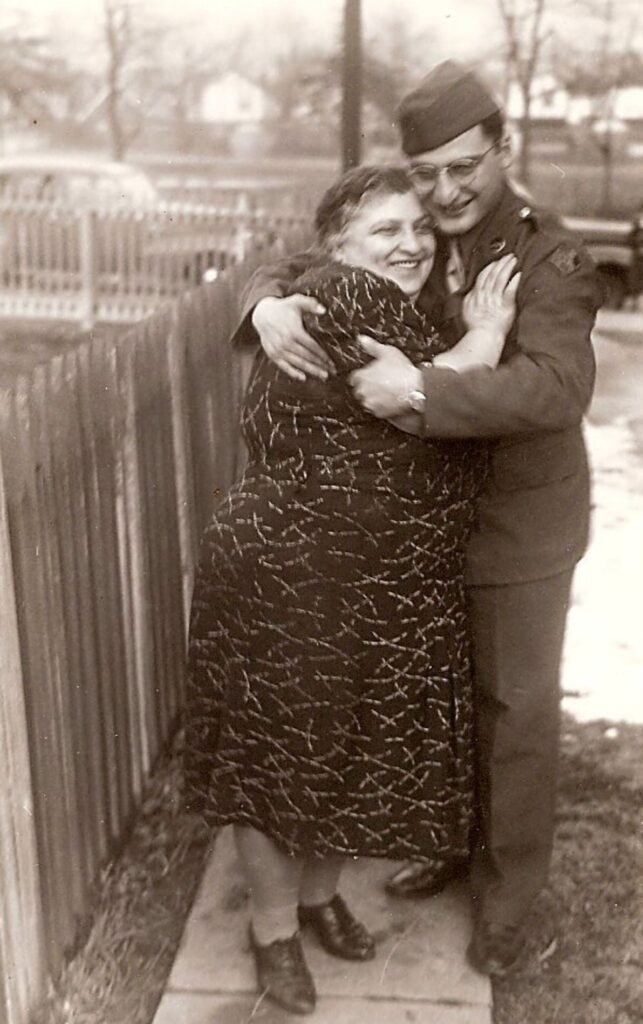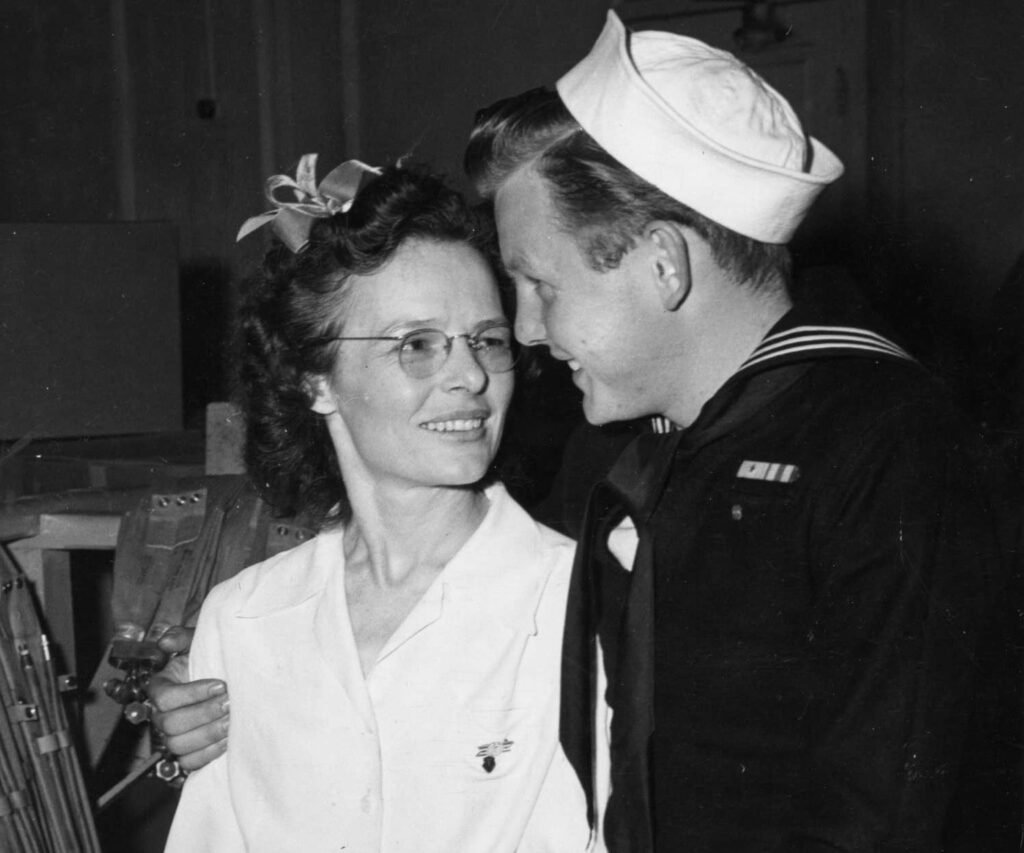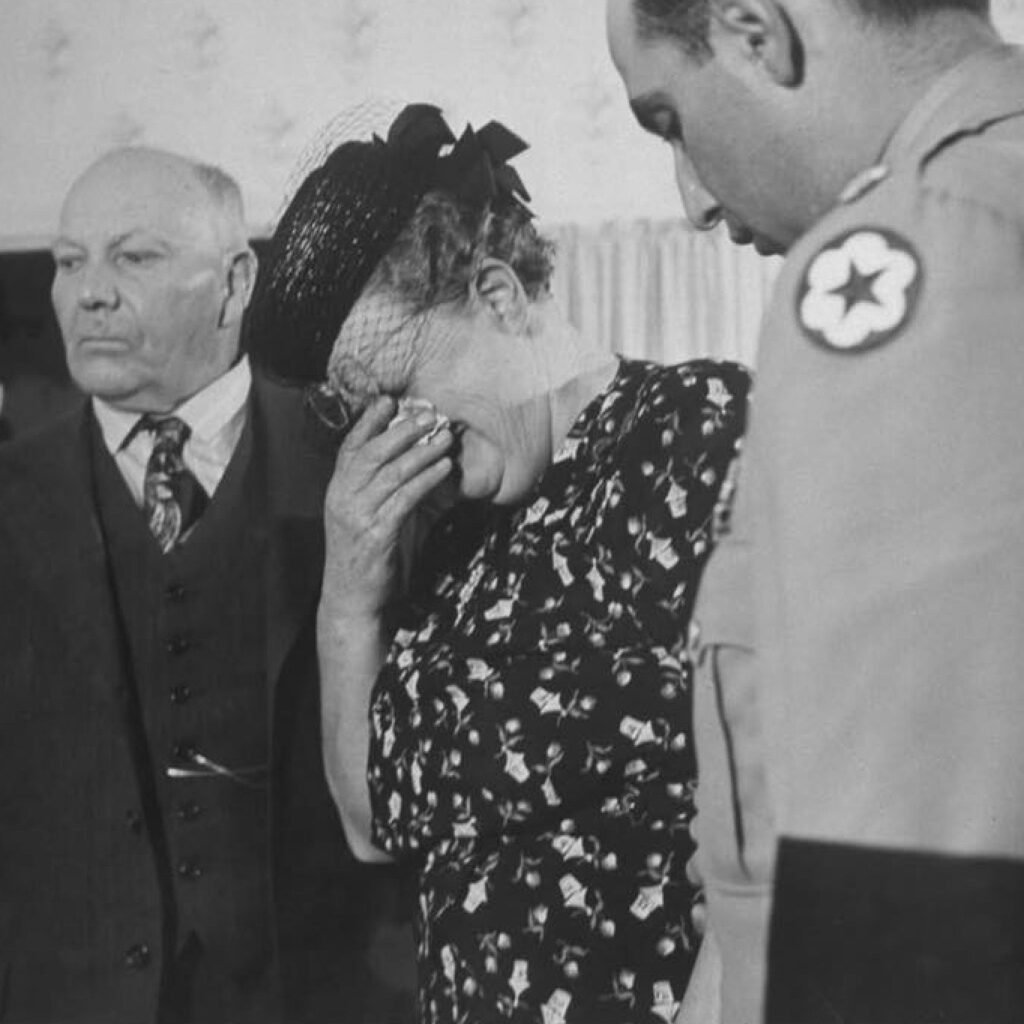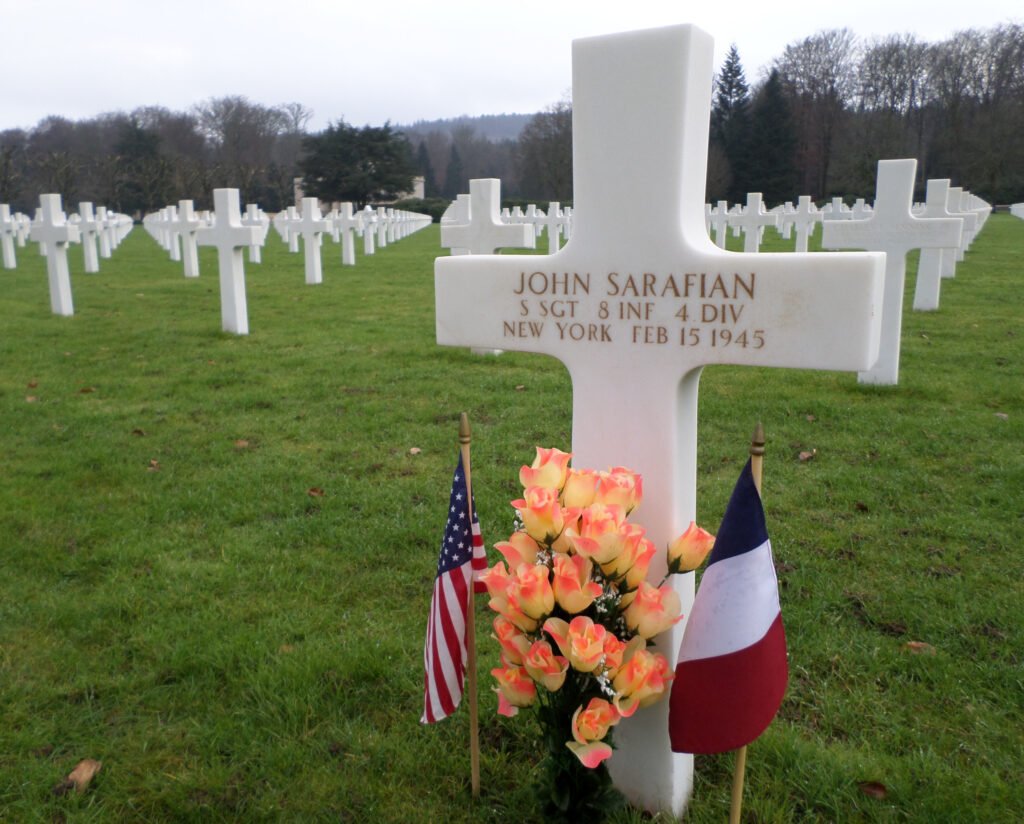During World War II, thousands of Armenian American mothers watched their sons go off to war and prayed every day for their safe return. Some did survive the war and came home. Some were badly wounded during atrocious fighting and spent months in U.S. military hospitals. Some came back but were forever haunted by what they saw. Some were killed in action and returned in coffins.

Armavany Sarafian was among the Armenian American mothers who never saw her son again. On July 10, 1915, in Constantinople, Armavany gave birth to a beautiful angel named John Sarafian. The first time she held her little boy, tears of happiness fell down her cheeks, but deep inside, she was terrified. John was an innocent baby, but for the Ottoman authorities, he was an Armenian baby and would sooner or later be sentenced to death. To save their newborn baby, Armavany and her husband George had no choice but to leave their homeland. A never-ending journey across Europe and the Atlantic Ocean led the Sarafian family to New York.
Surrounded by his sisters, brothers, father and irreplaceable mother, John had a fantastic childhood. After attending high school, he worked at a photo engraving company in New York. At the time, the family lived at 1624 Crosby Avenue in the Bronx. They later settled in Flushing, Queens. In March 1942, John decided to join the U.S. Army, in order to confront an enemy that resembled the one who had forced his parents into exile. As a proud member of the 8th Infantry Regiment, 4th Infantry Division, John took part in D-Day (June 6, 1944) and was among the first men to land on Utah Beach. Battle after battle, he demonstrated remarkable resilience, proudly liberating towns and villages that had lived under tyranny since 1940. After defeating German forces in Normandy, John and his comrades fought for freedom in Belgium and Luxembourg, before confronting German troops on their own soil.
Like all wars, World War II was marked by many heartbreaking stories and a few heartwarming ones. One of the fortunate mothers of the war was Vera Staples. On August 9, 1942, her son, Navy Signalman 3rd Class Elgin Staples, was aboard USS Astoria (off the coast of Guadalcanal) when the ship was attacked by several Japanese cruisers. The attack provoked devastating explosions. Wounded and surrounded by water coming from every direction, Elgin quickly grabbed an inflatable rubber lifebelt and strapped it on. More than 200 crewmen died in the attack and sinking of USS Astoria, but thanks to his lifebelt, Elgin survived. He was later rescued by the destroyer USS Bagley.
 Shortly after, Elgin closely examined the lifebelt that had saved him, and was surprised to see that it had been manufactured in his hometown of Akron, Ohio, by the Firestone Tire and Rubber Company. He also noticed an inspector number on the label. When Elgin returned to Akron, he told his mom about that horrible night, and she informed him that while he was overseas, she had taken a wartime job at the Firestone plant. Stunned, Elgin took out the lifebelt from his duffel bag and said, “Take a look at that, mom. It was made right here in Akron, at your plant.” After reading the label, she looked at Elgin with tears in her eyes and said, “Son, I’m an inspector at Firestone. This is my inspector number.” Without saying another word, mother and son fell into each other’s arms. Elgin returned to combat duties, but he survived the rest of the war and spent many more years of joy with his mother Vera.
Shortly after, Elgin closely examined the lifebelt that had saved him, and was surprised to see that it had been manufactured in his hometown of Akron, Ohio, by the Firestone Tire and Rubber Company. He also noticed an inspector number on the label. When Elgin returned to Akron, he told his mom about that horrible night, and she informed him that while he was overseas, she had taken a wartime job at the Firestone plant. Stunned, Elgin took out the lifebelt from his duffel bag and said, “Take a look at that, mom. It was made right here in Akron, at your plant.” After reading the label, she looked at Elgin with tears in her eyes and said, “Son, I’m an inspector at Firestone. This is my inspector number.” Without saying another word, mother and son fell into each other’s arms. Elgin returned to combat duties, but he survived the rest of the war and spent many more years of joy with his mother Vera.
Among the unfortunate mothers of World War II was Gunda Borgstrom, who lived in Box Elder County, Utah. During the war, her five sons all joined the military, went overseas and fought for our freedom, but only one returned home alive. PFC Clyde Borgstrom (U.S. Marines Corps) died on March 17, 1944, on Guadalcanal. Pvt Leroy Borgstrom (361st Infantry Regiment, 91st Infantry Division) was killed on June 22, 1944, in Italy. Sgt Rolon Borgstrom (USAAF) was mortally wounded on August 8, 1944, during a raid over Germany. PFC Rulon Borgstrom (38th Infantry Regiment, 2nd Infantry Division) died of wounds received on August 25, 1944, near Brest, France. Following Rulon’s death, Boyd Borgstrom, the last living brother, was transferred to the United States and discharged by special order of the Marine Corps Commandant. In June 1948, the bodies of Clyde, Leroy, Rolon and Rolun were repatriated to the United States and buried, side by side, at Riverview Cemetery in Tremonton, Utah. Gunda remained inconsolable until she passed away in 1971.

While Gunda lost her sons, one by one, in Flushing another mother prayed day and night for her little boy to survive the war. Armavany was so happy whenever she received a letter from John, but the thought of receiving a telegram informing her that her son had been killed or wounded was unbearable. Between battles, John found time to write to his mom and tell her how much he loved her. Mother and son shared a unique bond, so even at a distance, he always felt her comforting and loving presence. John couldn’t wait to go home and hold his mother, but sadly, on February 14, 1945, near Prüm, Germany, he was struck by enemy fire and fell to the ground. Seeing the seriousness of his wounds, his brothers-in-arms took him to a field hospital. Doctors and nurses did everything they could to save John, but he died the following day, on February 15, 1945. This true Armenian American hero was only 29 years old, and he died less than three months before the end of World War II in Europe. John is now resting in peace at the Epinal American Cemetery in France (Plot A, Row 40, Grave 36). Armavany never recovered from the loss of her son and passed away in 1955.

So often, we take our mothers for granted and forget their unconditional love and support. We ignore their calls, neglect to visit and become ungrateful. No love will ever be as pure and strong as a mother’s love. They love us even when we are unlovable. We must never forget everything they have sacrificed for us. As Abraham Lincoln once said: “All that I am or ever hope to be, I owe to my angel mother.” Mothers are a gift from God, but these irreplaceable angels are not immortal, so cherish every moment with your mother, tell her how much you love her, and never take the time you have with her for granted.
To honor S/Sgt John Sarafian, his beloved mother Armavany, and all the Armenian American mothers of World War II, here is a beautiful poem written by the great Armenian poet Hovhannes Shiraz.
MY MOTHER.
My mother, gate to our hopes,
She is the chapel of our homes,
She is our cradle, my mother,
The fort of our home, my mother,
My mother is both mother and father,
She is both slave and master,
She is the homeless of our home,
She is the nest of eagles, my mother,
She is the housemaid of our home,
And the sovereign of our house,
Although helpless, my mother,
She is both salve, balm and healer,
My mother, the fountain of our house
And the parched, thirsty sister,
Sleepless guardian, my mother
And our sweet sleep and slumber.
She is the lit candle, ever bright,
My mother is the sun, font of light.
(Translated by Tatul Sonentz)



Wonderful article. Brought tears to my eyes.
Another fantastic article. Thanks John. Happy Mother’s Day to all moms, both here on earth and up in heaven.
Thank you for this outstanding article. Heartbreaking, yet so heartwarming at the same time. Loved it.
A beautiful and heartfelt tribute to our beloved mothers. Thank you John.